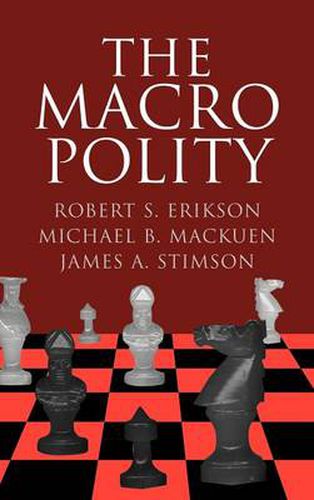Readings Newsletter
Become a Readings Member to make your shopping experience even easier.
Sign in or sign up for free!
You’re not far away from qualifying for FREE standard shipping within Australia
You’ve qualified for FREE standard shipping within Australia
The cart is loading…






The Macro Polity provides the first comprehensive model of American politics at the system level. Focusing on the interactions between citizen evaluations and preferences, government activity and policy, and how the combined acts of citizens and governments influence one another over time, it integrates understandings of matters such as economic outcomes, presidential approval, partisanship, elections, and government policy-making into a single model. Borrowing from the perspective of macroeconomics, it treats electorates, politicians, and governments as unitary actors, making decisions in response to the behavior of other actors. The macro and longitudinal focus makes it possible to directly connect the behaviors of electorate and government. The surprise of macro-level analysis, emerging anew in every chapter, is that order and rationality dominate explanations. This book argues that the electorates and governments that emerge from these analyses respond to one another in orderly and predictable ways.
$9.00 standard shipping within Australia
FREE standard shipping within Australia for orders over $100.00
Express & International shipping calculated at checkout
Stock availability can be subject to change without notice. We recommend calling the shop or contacting our online team to check availability of low stock items. Please see our Shopping Online page for more details.
The Macro Polity provides the first comprehensive model of American politics at the system level. Focusing on the interactions between citizen evaluations and preferences, government activity and policy, and how the combined acts of citizens and governments influence one another over time, it integrates understandings of matters such as economic outcomes, presidential approval, partisanship, elections, and government policy-making into a single model. Borrowing from the perspective of macroeconomics, it treats electorates, politicians, and governments as unitary actors, making decisions in response to the behavior of other actors. The macro and longitudinal focus makes it possible to directly connect the behaviors of electorate and government. The surprise of macro-level analysis, emerging anew in every chapter, is that order and rationality dominate explanations. This book argues that the electorates and governments that emerge from these analyses respond to one another in orderly and predictable ways.